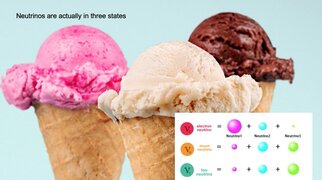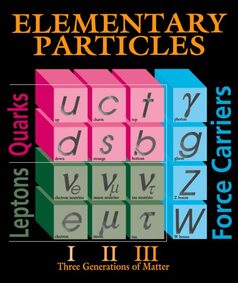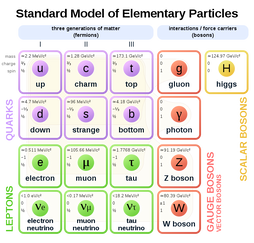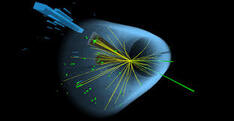
Neutrinos come in three flavours, just like ice cream. The article behind Elementary Particles adds contextual flakes. Take a lick of time there - the rest is here.
So now that you know about ice cream and its relationship to neutrinos - when is an ice cream not an ice cream? When it's oscillating. Changing (morphing sounds better when you're talking about an unseen, unknown event) from one version of itself into another, without being observed.
Neutrinos share a feature with the material field in which we're based, the quark-gluon field, in that quarks are doing the same thing (in tandem with their gluons) as the neutrinos are - morphing from one version of themselves into another. So nature being what it is, it stands to reason that if the quark has a gluon to dance with, the neutrino might have the same thing, only because it's so invisibly elusive (unlike the quark, that tends to stay where it is) and zipping along at the speed of light (at least), we'd be hard pressed to see what that thing might be, and have to rely on some kind of equation to find out in advance of seeing it. As seems to happen with most particles these days. Incidentally, it's really useful too to know what sea quarks are.
The three generations of matter are rated according to size rather than age. Symmetry Magazine terms it thus:
"Most of the generations differ in mass by a lot. For example, the tau lepton is roughly 3600 times more massive than the electron, and the top quark is nearly 100,000 times heavier than the up quark. That difference manifests itself in stability: The heavier generations decay into the lighter generations, until they reach the lightest, which are (as far as we can tell) stable forever."
Stable forever? Is anything forever? Electron neutrinos can - and do - become muons and taus and there's any permutation of the aforesaid you'd care to mention in the probability well. (Scroll down to "Flavour oscillations" here). Anyway, while the electron itself is "as far as we can tell, stable forever" and the electron neutrino carries on doing what it likes, can we ask - is this some kind of horrible game we're playing? It seems that electron-positron annihilation can produce almost anything - I've seen two photons, a quark and an antiquark (which then produces a gluon), And anyway, what happens to that gluon?
If these questions are of interest, and you want to explore the bridge between quantum physics and human experience, you might like to check out the group at https://www.facebook.com/groups/quantumol




 RSS Feed
RSS Feed
